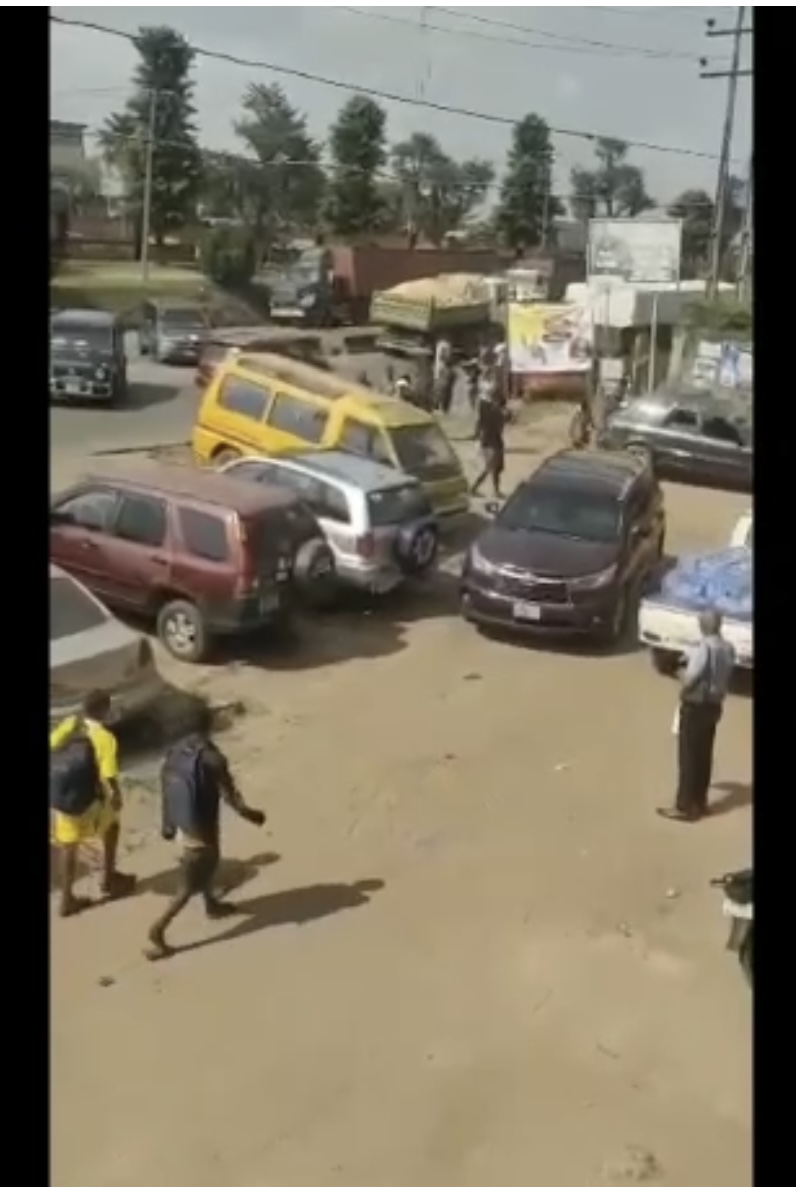Barely a day into his tenure, Edo State Governor Monday Okpebholo faces a crisis as violence erupts on the streets of Benin City. Two armed groups, reportedly promised control over revenue collection, clashed at Ramat Park in a chaotic bid for dominance—an outcome observers say reflects a storm of political promises and expectations. Goodluck Osaretin, a PDP member, suggests that this turbulence may be the consequence of campaign alliances that transformed local factions into power brokers, leaving citizens caught in the crossfire.
Earlier today, Governor Okpebholo suspended all revenue collections in Edo, warning that defaulters would face arrest. His stated aim was to restore order and halt the harassment of bus and taxi drivers by enforcers known locally as “Lions and Tigers.” But, within hours of this directive, armed men engaged in a violent showdown at Ramat Park, a central transport hub. Video footage shows gunshots ringing out in broad daylight, sending people fleeing in fear, even as nearby police—stationed close to high-security locations like banks and the INEC State office—failed to intervene.
According to Osaretin, this violence was no coincidence. “There were most likely promises made,” he explained, “and now those same groups feel betrayed and threatened.” He further noted that certain youth factions within the APC, led by figures such as Kabaka, Ebo Stone, No More Loss, and Osarobo, were reportedly assured revenue collection contracts in exchange for their support. With the governor’s sudden suspension of these activities, and recent statements from friends of the new Governor calling for the death penalty for cultists, tensions have escalated, leaving many to question whether these groups are now asserting their claims by force.
For Edo citizens, this eruption of violence has been a harsh reminder of unresolved issues within the new administration. Shopkeepers around Ramat Park quickly closed their stalls, fearing further unrest, as shotgun-wielding men turned a once-bustling hub into a conflict zone. “We had hoped for better,” said one street vendor who witnessed the chaos, expressing concern about the future under Okpebholo’s leadership.
Many residents are disturbed by the fact that, in a state with a visible police presence, especially around critical economic and governmental sites, armed factions can still roam freely. Governor Okpebholo’s directive suspending revenue collection appears to have little impact on factions who may view the move as a betrayal. According to Osaretin, these groups interpret the governor’s pivot as a broken promise, and their reaction speaks to a need for clearer boundaries between governance and campaign-driven political patronage.
In his first days, Okpebholo could have prioritized re-establishing the rule of law and a clear separation from campaign-era allegiances. Instead, the state now faces a test of control. Barrister Enwanta’s recent call for the death penalty for cultists may appeal to a public eager for stability, but critics like Osaretin question the effectiveness of such measures in the absence of a coordinated response to the violence and unrest gripping the state.
Governor Okpebholo’s leadership faces an immediate challenge: reining in forces empowered by political promises and taking decisive steps to protect Edo citizens. Until he addresses these alliances with clear action, the streets of Benin will remain hostage to an armed chaos fueled by the very groups once courted for support



